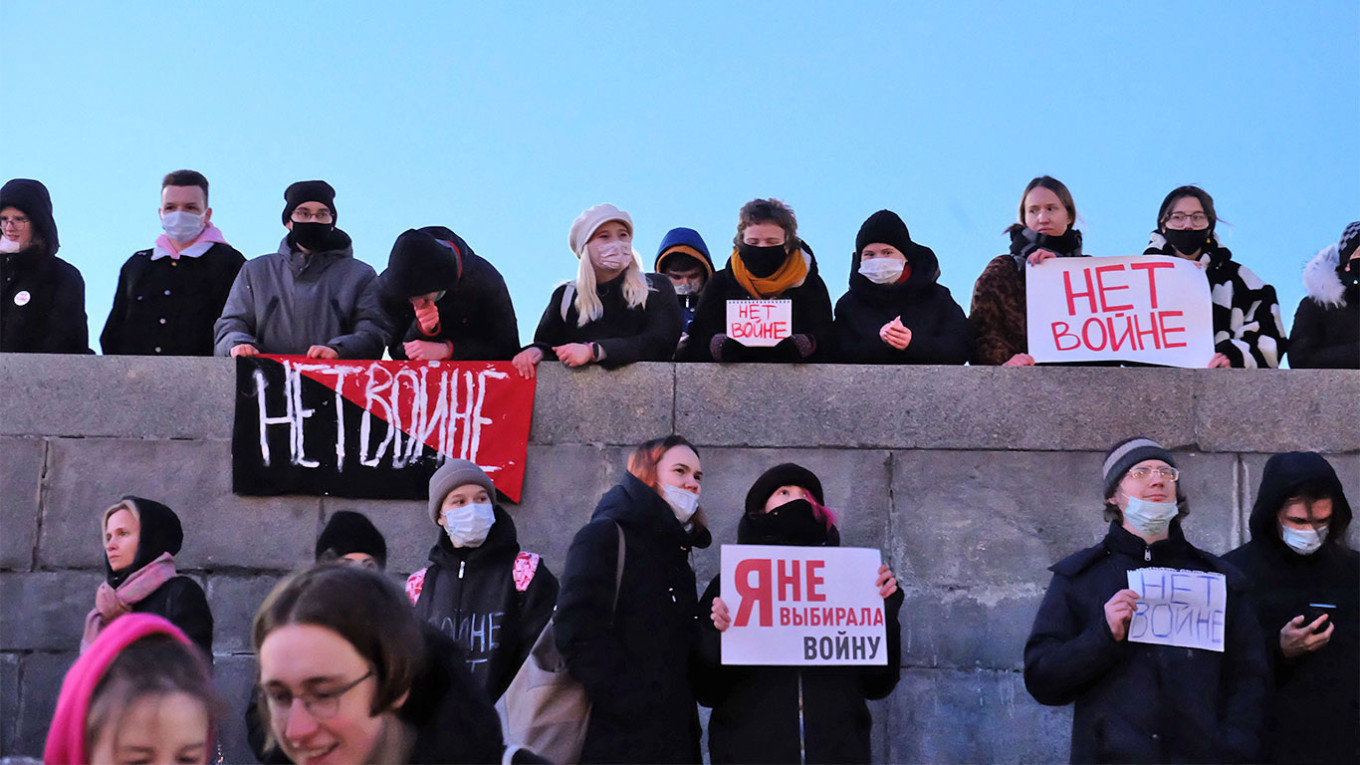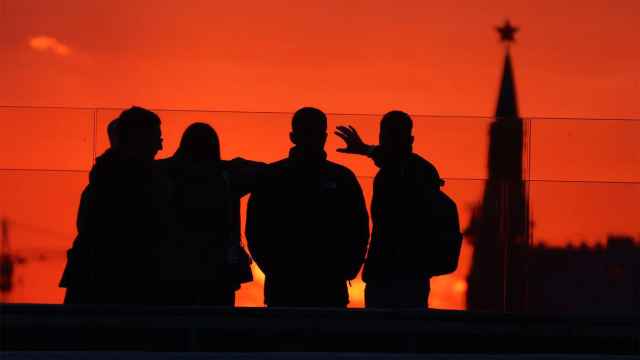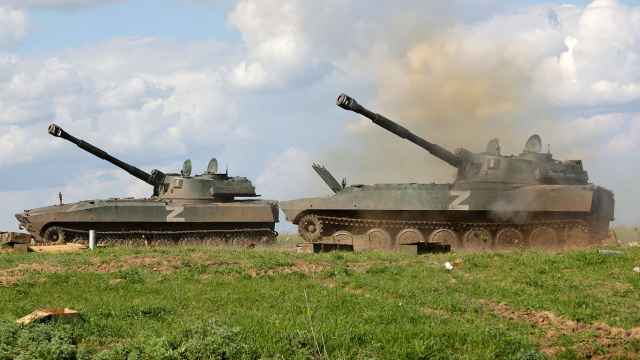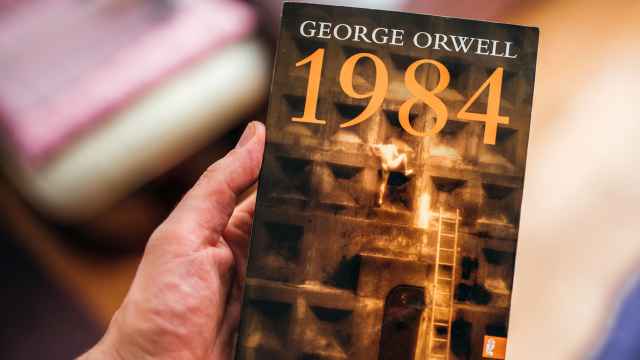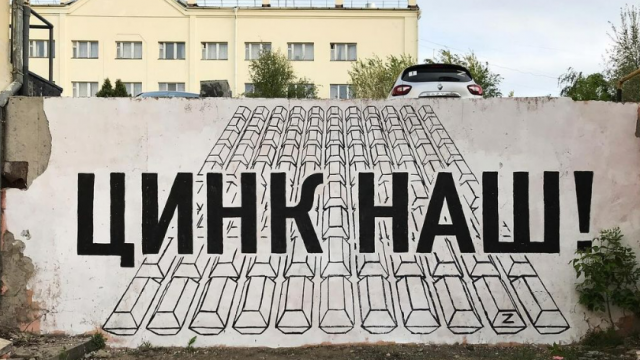The onset of Russia’s full-scale invasion of Ukraine sparked protests ranging from rallies and solitary pickets to mass letters and anti-war statements by celebrities — but even so, only a small percentage of Russians have shown open resistance to the war. The reasons behind this go beyond the fear of political repression. It is also the product of a deep-rooted instinct for psychological self-preservation.
According to OVD-Info, around 15,000 people have been detained at anti-war protests over the past two years. It is exceedingly difficult to use this number to gauge the full scale of Russia’s anti-war opposition. Moreover, sociologists like the Levada Center’s Lev Gudkov assert that 74% of Russians support Putin's decisions regarding the war in Ukraine, a figure that has hardly changed over the two years since the full-scale invasion began. At the same time, 57% support immediately ceasing military actions and entering negotiations, but only if Russia can keep the Ukrainian territories it has conquered.
Contemporary political science does not have a unanimous opinion on what type of political regime Russia falls under. However, many researchers agree that exercising political freedoms including freedom of speech is out of the question.
This is why sociologists like Grigory Yudin question the reliability of polling data, suggesting that most Russians either choose not to respond or to answer in a way that avoids trouble because they believe polls are conducted by the government. Yudin also claims that only about 5% of people respond to public opinion surveys. Figures claiming 74% support for Putin's decisions cannot be adequately interpreted as a result.
Fortunately, we have more than just quantitative data. The Public Sociology Laboratory used focus groups and conducted over 200 interviews in the spring of 2022 and another 90 that autumn to understand which groups of citizens support the war, which are against it, and the arguments used by each group.
As a result, sociologists divided the respondents into three groups: supporters of the war, opponents, and the undecided. Based on these data, it is possible to draft emotional-psychological portraits of each group, and understand their arguments and motives.
For war supporters, until the mobilization was announced, there was simply no war, and if there was no war, there would be nothing to resist. In this sense, the term "special military operation" is brilliantly deceitful. A military operation is not a war. It's something distant, special, that requires no particular attention. In the resulting narrative, Russia is not an aggressor. Rather, it is defending itself against attacks from the sinister “collective West." Ukraine is thus being held hostage by the evil forces resisting Putin’s heroism.
Interestingly, a significant portion of respondents, according to researchers, do not hold Putin responsible for the war in Ukraine. He is also perceived as a victim of circumstances, who was forced into this situation. At the same time, most of these individuals declare they are against the war. But since it seems inevitable, they feel they have to go along with it.
For virtually all respondents, the war came as a shock. To avoid shattering their existing worldview, they made the war a part of it. After all, perceiving your country as an aggressor, and its people as murderers, is unbearable. It is crucial to understand that the human psyche is remarkably adaptive and malleable, allowing survival under even the most extreme conditions.
The study also indicates that war supporters downplay the number of civilian casualties in Ukraine. Russian propaganda draws direct parallels between the "fight against Nazism in Ukraine" and the Great Patriotic War, framing anti-war protest as either impossible, since "we did not start this war," or criminal, as it supports the "global evil of Nazism."
In autumn 2022, the Public Sociology Laboratory conducted a second study to understand how the position of war supporters had changed. This research revealed significant shifts in public perception of the war following the announcement of mobilization: the number of staunch supporters greatly diminished, as more people demanded an end to the fighting.
The war’s remaining supporters see it as a path to peace in Donbas. To them, anyone who thinks differently is unmoved by the suffering of people living in separatist regions. Thus, researchers note, a large portion of war supporters have also become its opponents. However, the perception of the war as an inevitable evil remains unchanged, rendering any actions against it seemingly pointless.
Another group identified by researchers is the undecided, who do not express a clear moral judgment on the war. They are trying to act as if the war does not affect them to avoid becoming distressed from their internal conflict. Research shows that humans naturally try to avoid unpleasant experiences, even if it leads to negative consequences in the future.
However, this attempt to emotionally detach from the events is not always successful. Even before mobilization, the war indirectly impacted many aspects of their lives, causing uncertainty and anxiety. Consequently, their anxiety has become nonspecific, thus not motivating individuals toward any political action. Therefore, this stance is somewhat more "normal than that of either a supporter or opponent of the war.
Finally, the researchers identified a third group who were actively opposed to the war. For these individuals, the start of the full-scale invasion of Ukraine was especially shocking as it contradicted their moral norms.
For a long time, Russians lived with the notion that war was something either relegated to the distant past or happening far away in Syria. War, it turns out, can take place close to home, affecting you and your relatives living in Ukraine or Belgorod. Day after day, watching military reports, war opponents experience anxiety, fear, and pain. These intense experiences simply exhaust people, leading to a sense of helplessness. Propaganda efforts and surveys, creating the image of a majority that supports the war, play a significant role here.
Additionally, resistance does not bring about political change, only violence from law enforcement. Since the beginning of military actions in Ukraine in 2022, Russia significantly tightened legislation against anti-war statements, including adopting a law that criminalizes the dissemination of information deemed false about the actions of the Armed Forces, with penalties up to 5 million rubles ($55,200) and up to 10 years of imprisonment. There has also been increased prosecution for "discrediting the army," leading to criminal cases, searches, and pressure on those critical of the government on social media.
The Russian state harshly punishes individuals for small-scale actions. For instance, Sasha Skochilenko, who replaced price tags in a store with anti-war messages, received 7 years in prison. Though these high-profile cases are relatively few in number, they broadcast how serious the risks of any kind of resistance can be.
Moreover, the motivation of war opponents stems from moral norms of intolerance towards violence. This same moral stance also prevents them from engaging in violence against government representatives. Research shows that the human brain predicts actions based on past actions, and if actions lead to a negative outcome, repeating them seems pointless.
For example, a Socialist Revolutionary from the late 19th century could attempt to assassinate an official or even the tsar, and his comrades would see a real political result from their actions. Even if this result was negative for the revolutionaries in the long term, their brains could justify the action as successful. If someone protests against the war in Ukraine, the likely result is a police baton to the head, administrative arrest, or even a criminal case, but certainly not the cessation of the war or significant political changes. As a result, war opponents often feel in the minority and helpless, and their actions seem to bring only negative consequences for themselves. In such conditions, active anti-war protest becomes simply impossible.
However, despite all this, anti-war resistance among Russians does exist. Firstly, those who have left Russia due to the war actively protest against it, as the risks of state violence for them have become minimal.
Secondly, there has emerged what anthropologist Alexandra Arkhipova calls "hidden” anti-war protest. Arkhipov notes a whole movement of anonymous art activism with a distinctly anti-war character. Anti-war stickers in public transport, disguised as standard signs for children and disabled seats, anonymous graffiti with red ballerinas, or even charades that reveal the phrase "no to war," are all new forms of anti-war protest Russians have turned to.
Thirdly, if one broadly understands protest against the war to include actions such as refusing to participate in anything related to the war, then the mass exodus of Russians from the country can also be seen as a form of protest.
Can this situation be changed? It's hard to say. The death of Alexei Navalny showed us that we do not live in a Hollywood movie where the hero defeats the evil emperor. This war could last for many years, even without the mass support of citizens, if the majority views it as a natural phenomenon over which they have no power.
Perhaps the most that war opponents can now do, without resorting to violence, is to continue reminding everyone around them that war is a human-made disaster. It is not an earthquake or a volcanic eruption. The war was not started by gods, but by flesh-and-blood people — meaning it is we, the people, who can stop it.
A Message from The Moscow Times:
Dear readers,
We are facing unprecedented challenges. Russia's Prosecutor General's Office has designated The Moscow Times as an "undesirable" organization, criminalizing our work and putting our staff at risk of prosecution. This follows our earlier unjust labeling as a "foreign agent."
These actions are direct attempts to silence independent journalism in Russia. The authorities claim our work "discredits the decisions of the Russian leadership." We see things differently: we strive to provide accurate, unbiased reporting on Russia.
We, the journalists of The Moscow Times, refuse to be silenced. But to continue our work, we need your help.
Your support, no matter how small, makes a world of difference. If you can, please support us monthly starting from just $2. It's quick to set up, and every contribution makes a significant impact.
By supporting The Moscow Times, you're defending open, independent journalism in the face of repression. Thank you for standing with us.
Remind me later.



